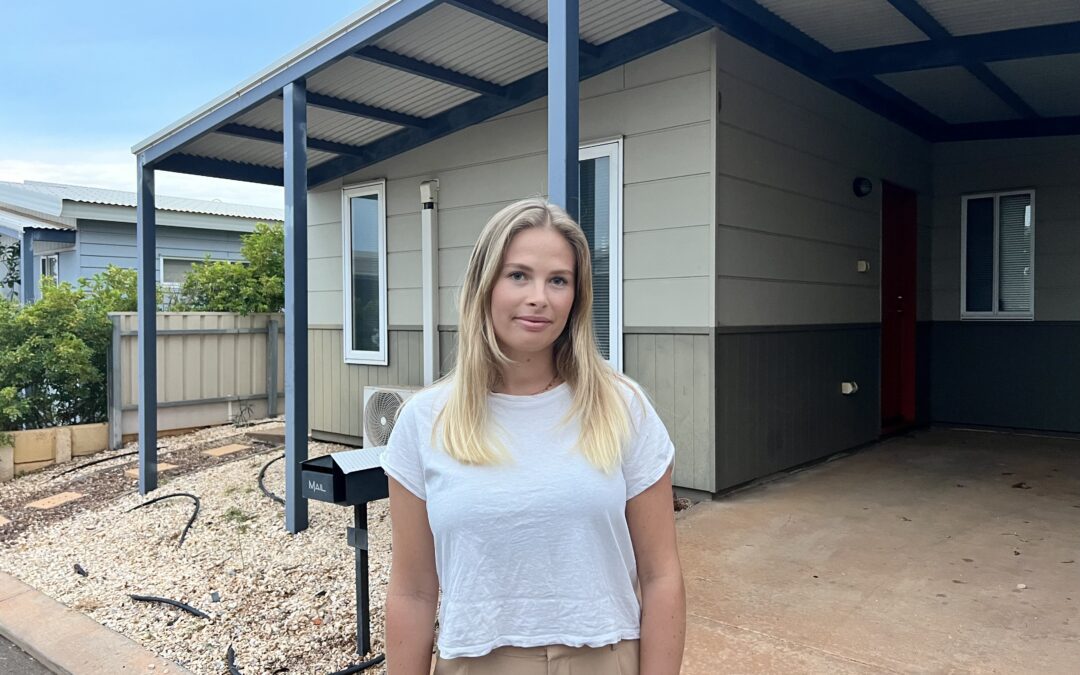Western Australian journalist, Eliza Kloser was pulled over multiple times on her way home from an assignment just hours before her house was raided by police.
The Ngaarda Media journalist and former UOW journalism student was tasked to take photos of ancient rock art that was being removed from a remote area in WA’s Pilbara region to make way for a multi-billion-dollar urea plant.
Ms Kloser noticed an unusual police presence at the site on the Burrup Peninsula as she began taking pictures on public land.
She said her presence attracted the attention of a police officer who asked what she was doing and where she worked. She said she was also pulled over a second time while driving away from the site and was asked to undergo a breath test.
I was taking photos of ancient rock art being removed and stopped twice by the police.
I am glad that the WA Police Commissioner Col Blanch agreed to look into the circumstances of the incident. #PressFreedom
— Eliza Kloser (@eliza_kloser) May 3, 2023
“They asked me to get out of the car because they wanted to do a road safety standard check, so they searched my vehicle and proceeded to ask me about my camera, what I was doing out there and what I was taking photos of,” Ms Kloser said.
“I think they were quite interested in what I was doing and I was unsure why, in no way was I in the wrong, so that was a very interesting interaction.”
A couple of hours later, Ms Kloser’s home in Karratha was raided by police searching for the photos.
It was an experience she never thought would ever happen to her.
“They searched the place, they went through my room, they went through everything”, Ms Kloser said.
“They were looking through the photos on my camera for a while, and that ended up being the only thing they took.”
How was your weekend? I got raided by cops https://t.co/jRzkXp1noS
— Eliza Kloser (@eliza_kloser) May 2, 2023
This week marks the 30th anniversary of UNESCO’s World Press Freedom Day, a day that raises awareness of the importance of freedom of the press and to remind governments of their duty to respect the right to freedom of expression.
The day is celebrated on 3 May each year. This year’s theme was ‘Shaping a Future of Rights’, calling for freedom of expression to be a “driver for all other human rights”.
University of Wollongong journalism lecturer Dr Shawn Burns spoke to RadioU on World Press Freedom Day, and said it is a day that everyone in society should be take seriously.
“Journalists should be protected… making sure people are not silenced, making sure journalists can report freely and openly and to not do so at the risks of their own lives,” Dr Burns said.
“Journalists face growing combative governments, from people who you may have thought would’ve been supportive of journalism and journalists.”
View this post on Instagram
A 2022 report from the Reuters Institute said trust in Australian journalism is at 41%, down by 2% from the previous year.
Local news sources, the ABC and SBS all received trust ratings above 60% according to the report, while only one third of those surveyed think that the media is independent from “undue political or government influence”.
Dr Burns, who is also UOWTV managing editor, said democracies, like Australia, need media freedoms, and that if people start to contest the legitimacy of the media, then democracy itself is challenged.
“The capacity for people to take defamation action against journalists is probably as easy as it has ever been, if we rely on litigation as a means of silencing journalism then we challenge democracy,” Dr Burns said.
“We need to be able to be in a situation, in Australia, where journalists can tell stories that need be told without the fear of defamation.”
Ms Kloser said journalistic freedom needs to be protected and strengthened to allow reporters to cover stories that concern indigenous affairs, social justice, and environmental issues without conflict.
“There is a theme that has been happening, that is journalists being questioned or being limited possibly in their ability to report these types of issues and that needs to stop,” Ms Kloser said.
“What I’d like to see is less restrictions around journalists, especially by the police, and I’d like to see the government stickup for journalists because in the end, journalists are the ones that hold up democracy.”
Standing with you, @eliza_kloser #WPFD @UOWalumni #uowjournalism https://t.co/8m2IG6sxm9
— UOWTV (@UOWTV) May 3, 2023

